|
Is the UK digital sector really taking sustainability seriously?
|
Hello!
We have lots to be thankful this month, with many reasons to celebrate. Firstly, we’ve reached 4,000+ subscribers to this newsletter, for which I’m truly thankful. As you may know, we plant 1,000 trees with Eden Reforestation projects every time we reach another 1,000 subscribers – one for each of you. Very apt this week as Monday was National Love a Tree Day! 💚🌳
We also have even more reason to celebrate here at Wholegrain as we’ve received two awards this month! One from BIMA 100 (more below), and one from global community Escape the City, who have named us one of the top 100 organisations to escape to in 2022.
If you’d like to escape to us, we do have vacancies! See the ‘seeking positive people’ section at the end of this newsletter for more info.
Until next time,
– Tom Greenwood
|
|
|
Top picks from the green web
|
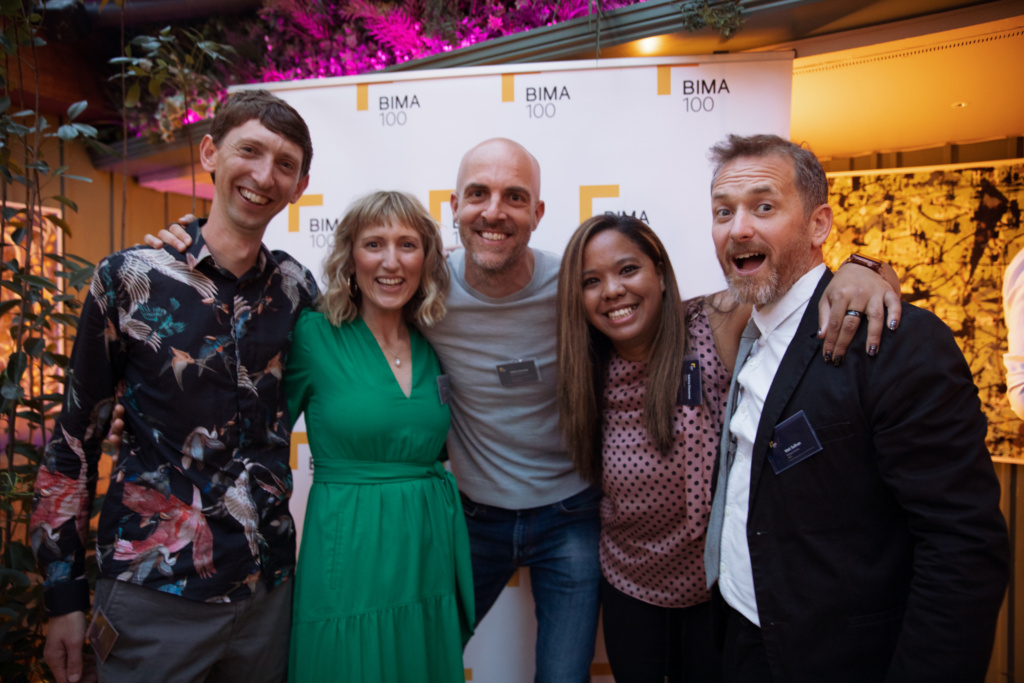
Is the UK digital sector really taking sustainability seriously?
|
I am honored to have been recognised this year by BIMA as one of the UK’s 100 most influential people in digital and tech, in their ‘Champions for Change’ category. And I wasn’t alone. Others doing great working promoting sustainability in the UK digital sector also got featured this year, including Sabrina Chevannes, Marcus Hemsley, James Cannings, Alex Holliman and Maddy Cooper.
So does this mean that BIMA, which is effectively the industry body for the UK digital sector, is now committed to promoting the use of digital to create a more sustainable world?
I’m going to be completely honest and say that the awards night highlighted an interesting contradiction to me, with people trying to drive social and environmental progress rubbing shoulders with people using digital technology to ruthlessly maximise financial profit (and no doubt many in between).
The most striking example of this was the Hall of Fame award, which is the biggest honour bestowed by BIMA. One of this years Hall of Fame recipients was Steven Bartlett, co-founder of Social Chain, a hugely successful digital marketing agency working with the likes of Coca Cola, KFC, Amazon and fast fashion brand Pretty Little Thing. By pure coincidence, the day after the awards night, I stumbled on a recent article by Hannah Cox questioning why tree planting company Ecologi had chosen Bartlett as the face of their new marketing campaign, when he has no credible track record of doing anything sustainable, and to the contrary has made millions promoting destructive products and services.
And there’s the rub. While our industry has started talking more about being a force for environmental and social good, the industry at its heart has a single priority – financial profit. Can we really create a sustainable digital sector while our industry is primarily focused on using digital technology to drive consumption? I think this is one of the toughest questions that our industry (and society) needs to answer.
|
|
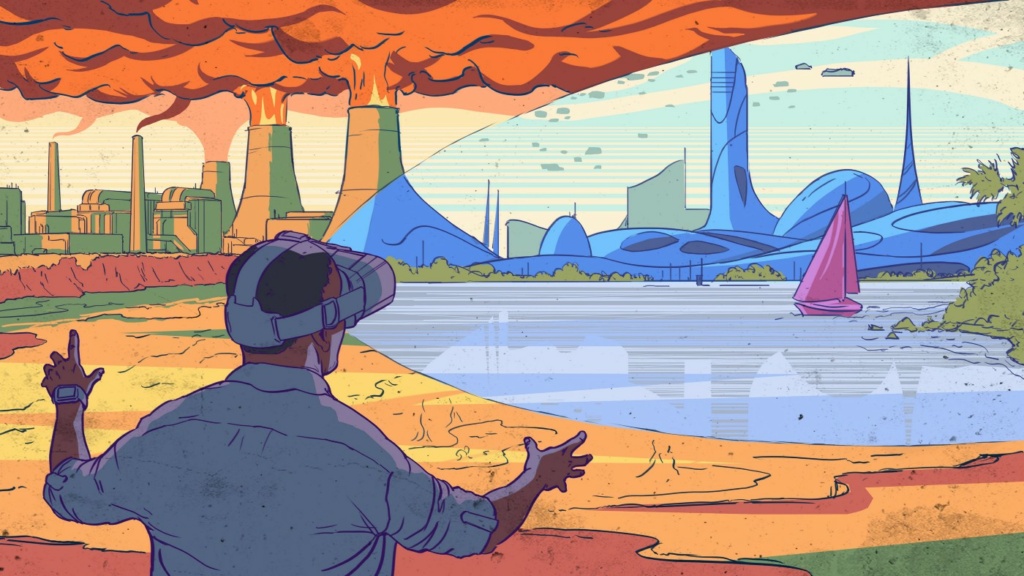
Microsoft publishes green design principles
|
Microsoft Design has recently published their Green Design Principles as a free guide to download. These Principles are split into two main categories: ‘Think bigger before you start’, and ‘Build better by default’, underpinned by an emphasis that we must understand the wider context of the climate crisis.
“Thinking bigger before we start” encourages us to ask ourselves challenging questions to set the foundation for our projects and ensure we follow an approach that is more likely to deliver positive outcomes.
“Building better by default” encourages us to ensure that best practices in efficient design and development are not an after thought, but the standard way that we approach our work.
It’s interesting to see how, like the Sustainable Web Manifesto, they have blended both technical and philosophical factors to create a more holistic approach to creating sustainable digital services.
|
|
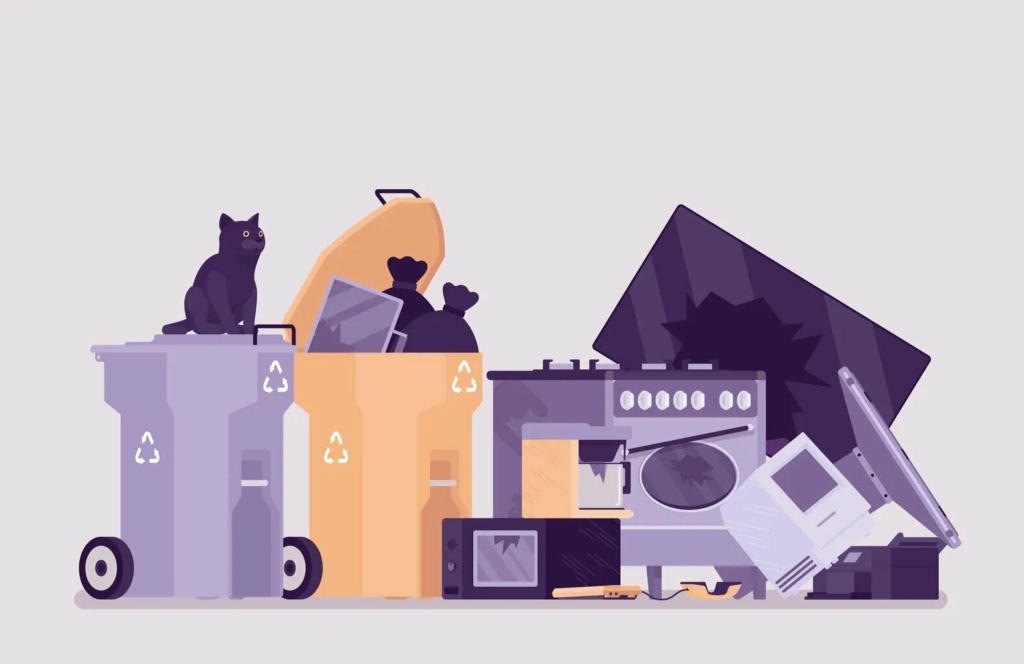
Right to repair reforms need review
|
We’ve talked here many times about the need for a more circular approach to electronic device manufacturing, arguing the need for sustainability to be considered at the design stage, to increase their shelf life and reduce the ever growing amount of e-waste.
While the promises made by big tech – such as Apple’s increased use of recycled materials, and Google’s recent announcement that consumers will have better access to parts to repair their pixel phones, this just isn’t enough. The Big Tech companies need to step up, by making parts for all of their devices accessible to consumer, so they can fix their own devices instead of buying new ones.
There are some new laws like the UK’s “Right to Repair” and France’s “Repairability Index“, but it still feels like we have a long way to go in solving this global problem.
|
|
|
How much of your website's carbon footprint comes from third party resources?
|
So you’ve built what you thought was a low carbon website, following your checklist to ensure you kept your digital footprint low… but something is still pushing your carbon score up. Could your third party resources be the culprit?
Web Sustainability and Performance Consultant Fershad Irani has created a tool to check whether the third party resources used by your website are green. Simply named, Are my third parties green?, the tool – which has an open API – analyses each url, checking for resources that are served by third parties and measuring the impact of these on your website’s carbon footprint.
|
|
|
|
|
"We can’t just consume our way to a more sustainable world."
|
Jennifer Nini
|
|
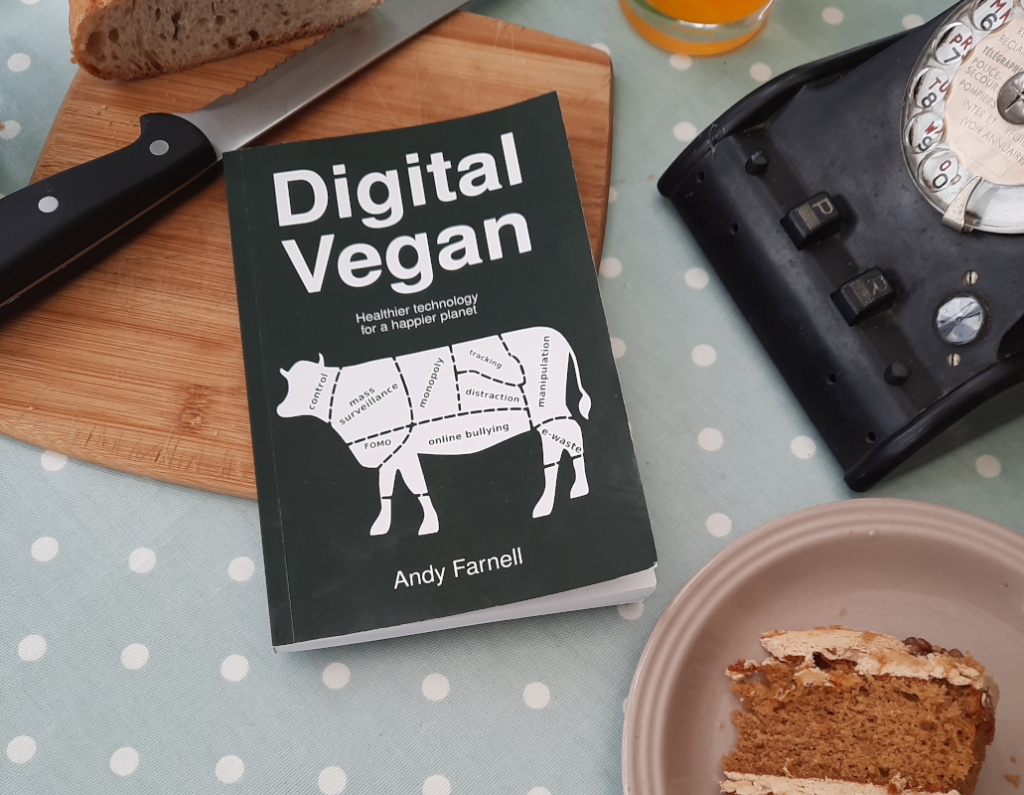
Digital Vegan by Andy Farnell
|
As someone who’s run a digital agency for 15 years and lived a vegan lifestyle for about 10 years, I had to read this book.
It turns out that the book has nothing to do with food or animals, and the author is not a vegan. However, the term “vegan” is used to represent the idea that just as food impacts our physical health, technology affects our mental health and our society. Just like being vegan, Farnell challenges us to do what is right, even if it’s not popular.
The book takes us on a journey through some of the darkest aspects of the digital sector including invasions of privacy, online bullying, monopolies and electronic waste. While these might be challenging topics, the book urges us to see that we have an opportunity to do things better and to lead the way towards a healthier relationship with tech, as well as to reduce the negative impact of digital technology on the environment.
As you might expect from a book with vegan in the title, it is highly opinionated, but even if you don’t agree with every detail, it offers an important challenge to help us think and do better.
|
|
|
|
|
Other news from the green web
|
|
|
|
Join our team at Wholegrain Digital
|
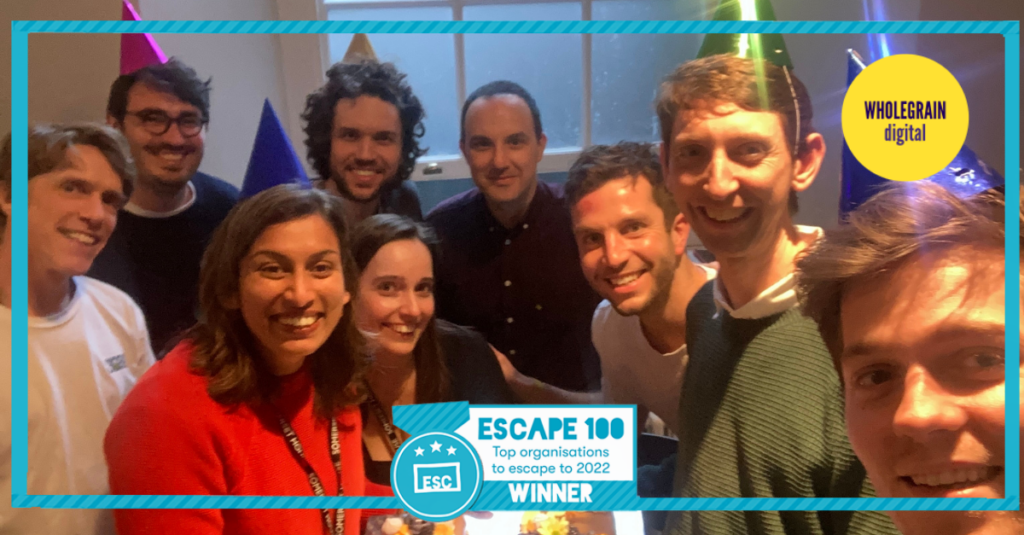
Join one of the 100 best organisations to escape to in 2022!
|
Are you passionate about using design and digital technology for good? We’re a friendly team, passionate about what we do, and we have just been named by Escape the City as one of the 100 best organisations to work for in 2022! Check out our Escape 100 profile to find out why, and read what our team members say about working at Wholegrain.
If you want to join us in our mission to create a better web for a better world, check out our careers page or simply get in touch with me to introduce yourself.
|
|
|
|
|
Curiously Green is curated and written by Tom Greenwood and Rachael B.
|
|
|
|